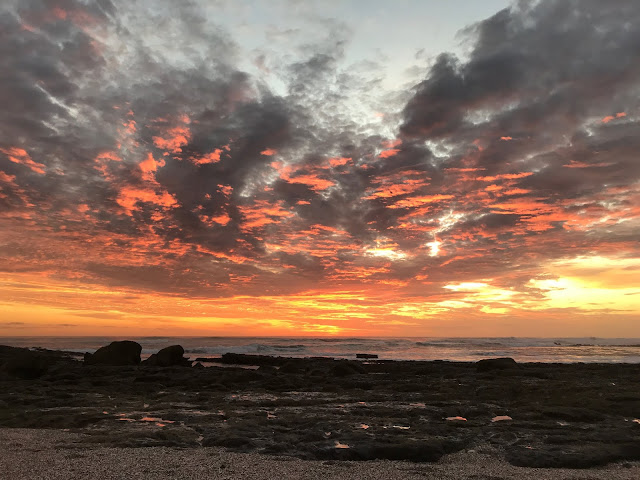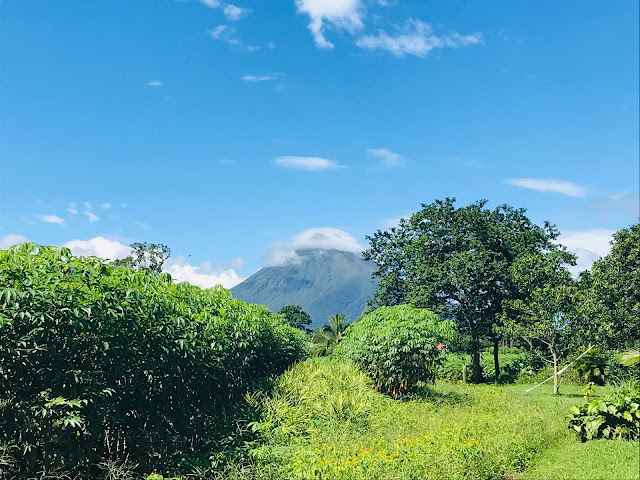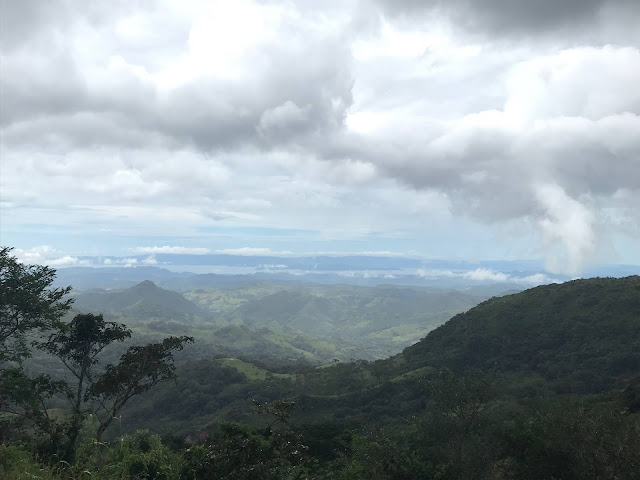Bhutan: Tiger Nest - Beyond the Sky and the Earth
One of my last adventures is the widely known climb to the Tiger Nest monastery - it is on the photo that always appears when one searches online for Bhutan - this miraculously nested in the rocks monastery. Hence, I am a bit conscious of the fact that it will be very visited and crowded. And my fears come true...but that's OK, because there are enough events that day to compensate.
While Tashi is extremely knowledgeable about Buddhist history and traditions, he is quite young and not yet very immersed into the essence and philosophy of Buddhism. That, by itself, helps me understand the fact that Buddhist philosophy does not connect automatically with Buddhist religion, and while there is some level of common values within the nation, Buddhist values and beliefs are not automatically integrated within the citizens of Buddhist countries. This might seem quite obvious, but it was part of my goals to explore namely the common values in a Buddhist country and compare them with the Western world, where values have to a great extent separated from religion.
 On the way to the Tiger Nest, we stop at a cafe just underneath the monastery with a truly spectacular view of the whole building. It is fascinating, while being extremely modest and offering not more than tea and coffee, I find this the most luxurious cafe I have ever been to - in the middle of the Himalayas, overlooking the Tiger Nest?!?! There I meet another guide, who is a little older than Tashi and we immediately immerse into deep philosophical conversations. I drown him in questions, he drowns me in explanations, it's amazing. From the few hours hike, these are a few takeaways/highlights from our conversations:
On the way to the Tiger Nest, we stop at a cafe just underneath the monastery with a truly spectacular view of the whole building. It is fascinating, while being extremely modest and offering not more than tea and coffee, I find this the most luxurious cafe I have ever been to - in the middle of the Himalayas, overlooking the Tiger Nest?!?! There I meet another guide, who is a little older than Tashi and we immediately immerse into deep philosophical conversations. I drown him in questions, he drowns me in explanations, it's amazing. From the few hours hike, these are a few takeaways/highlights from our conversations:
- One of the main problems of the society today, is the inability to disconnect with daily life and connect with self, with others and with nature.
- Taming and calming our minds is the first step towards pure happiness - our emotions and feelings are just projections of our mind. Things are as they are and we only suffer because we imagine differently.
- We should constantly give a lot from ourselves to others - on the way of mastering the art of giving. Every time when we give some cents to a homeless person or offer some money in a monastery, we should do it completely consciously and purposefully - with the purpose of training our non-attachment to money. It is a simple exercise but if exercised daily, it will slowly integrate into our entire lives.
- We should be compassionate to all living beings, starting from ourselves.
- It is not the action itself that has the biggest importance, it is the motivation behind it. And we should not judge people based on how their action made us feel, but on what the nature of their motivation was. (if only we could all understand and adopt that)
 At the monastery itself it is really crowded as expected, but that's OK, I can't get disappointed by anything. One could feel the place is magical, though. It is very cute as people genuinely believe the monastery was built for the first time by a flying tiger, who was a great guru that came from Tibet - hence, the Tiger Nest. And when I ask "OK, but how was it REALLY built?" I receive a disapproving and defensive look, plus an answer "What do you mean by how it was really built?! You just heard!" Then I let it go :) maybe it really came on a Tiger !
At the monastery itself it is really crowded as expected, but that's OK, I can't get disappointed by anything. One could feel the place is magical, though. It is very cute as people genuinely believe the monastery was built for the first time by a flying tiger, who was a great guru that came from Tibet - hence, the Tiger Nest. And when I ask "OK, but how was it REALLY built?" I receive a disapproving and defensive look, plus an answer "What do you mean by how it was really built?! You just heard!" Then I let it go :) maybe it really came on a Tiger !
 Inside the monastery, I meet one of the three main lamas of the monastery and I ask him if he can tell my future (I read this happened to someone in one of my travel books on Bhutan and decided to give it a try myself) - he frowns at me and says he is not supposed to do that for women, but then dear Tashi somehow convinces him. The lama gives me two dices and asks me to throw them in a special bowl, then he prays to the dices and tells me my future. That part I will obviously leave to myself but it is beautiful and two years down the road I will realize it is actually either the truth or a self-proving prophecy.
Inside the monastery, I meet one of the three main lamas of the monastery and I ask him if he can tell my future (I read this happened to someone in one of my travel books on Bhutan and decided to give it a try myself) - he frowns at me and says he is not supposed to do that for women, but then dear Tashi somehow convinces him. The lama gives me two dices and asks me to throw them in a special bowl, then he prays to the dices and tells me my future. That part I will obviously leave to myself but it is beautiful and two years down the road I will realize it is actually either the truth or a self-proving prophecy.
In the last evening of my stay in Bhutan, I have left to myself the last pages of my latest book on Bhutan - "Beyond the Sky and the Earth" by Jamie Zeppa. What a captivating book, honestly, one of those books that come into your life, change it and when they finish, you feel like someone has stolen something from you. This is how I feel that night - I have finished my book, when I was so hungry for more - more of the book and more of Bhutan.
Finally, why is it called "Beyond the Sky and the Earth" ? Because in Dzonkha (the national language in Bhutan), for "Thank you" , people often say "Name Same Kadinchay" - besides sounding very pretty, it has a pretty meaning "Thank you beyond the Sky and the Earth."
Name Same Kadinchay, my lovely Bhutan!
While Tashi is extremely knowledgeable about Buddhist history and traditions, he is quite young and not yet very immersed into the essence and philosophy of Buddhism. That, by itself, helps me understand the fact that Buddhist philosophy does not connect automatically with Buddhist religion, and while there is some level of common values within the nation, Buddhist values and beliefs are not automatically integrated within the citizens of Buddhist countries. This might seem quite obvious, but it was part of my goals to explore namely the common values in a Buddhist country and compare them with the Western world, where values have to a great extent separated from religion.
 On the way to the Tiger Nest, we stop at a cafe just underneath the monastery with a truly spectacular view of the whole building. It is fascinating, while being extremely modest and offering not more than tea and coffee, I find this the most luxurious cafe I have ever been to - in the middle of the Himalayas, overlooking the Tiger Nest?!?! There I meet another guide, who is a little older than Tashi and we immediately immerse into deep philosophical conversations. I drown him in questions, he drowns me in explanations, it's amazing. From the few hours hike, these are a few takeaways/highlights from our conversations:
On the way to the Tiger Nest, we stop at a cafe just underneath the monastery with a truly spectacular view of the whole building. It is fascinating, while being extremely modest and offering not more than tea and coffee, I find this the most luxurious cafe I have ever been to - in the middle of the Himalayas, overlooking the Tiger Nest?!?! There I meet another guide, who is a little older than Tashi and we immediately immerse into deep philosophical conversations. I drown him in questions, he drowns me in explanations, it's amazing. From the few hours hike, these are a few takeaways/highlights from our conversations:- One of the main problems of the society today, is the inability to disconnect with daily life and connect with self, with others and with nature.
- Taming and calming our minds is the first step towards pure happiness - our emotions and feelings are just projections of our mind. Things are as they are and we only suffer because we imagine differently.
- We should constantly give a lot from ourselves to others - on the way of mastering the art of giving. Every time when we give some cents to a homeless person or offer some money in a monastery, we should do it completely consciously and purposefully - with the purpose of training our non-attachment to money. It is a simple exercise but if exercised daily, it will slowly integrate into our entire lives.
- We should be compassionate to all living beings, starting from ourselves.
- It is not the action itself that has the biggest importance, it is the motivation behind it. And we should not judge people based on how their action made us feel, but on what the nature of their motivation was. (if only we could all understand and adopt that)
 At the monastery itself it is really crowded as expected, but that's OK, I can't get disappointed by anything. One could feel the place is magical, though. It is very cute as people genuinely believe the monastery was built for the first time by a flying tiger, who was a great guru that came from Tibet - hence, the Tiger Nest. And when I ask "OK, but how was it REALLY built?" I receive a disapproving and defensive look, plus an answer "What do you mean by how it was really built?! You just heard!" Then I let it go :) maybe it really came on a Tiger !
At the monastery itself it is really crowded as expected, but that's OK, I can't get disappointed by anything. One could feel the place is magical, though. It is very cute as people genuinely believe the monastery was built for the first time by a flying tiger, who was a great guru that came from Tibet - hence, the Tiger Nest. And when I ask "OK, but how was it REALLY built?" I receive a disapproving and defensive look, plus an answer "What do you mean by how it was really built?! You just heard!" Then I let it go :) maybe it really came on a Tiger ! Inside the monastery, I meet one of the three main lamas of the monastery and I ask him if he can tell my future (I read this happened to someone in one of my travel books on Bhutan and decided to give it a try myself) - he frowns at me and says he is not supposed to do that for women, but then dear Tashi somehow convinces him. The lama gives me two dices and asks me to throw them in a special bowl, then he prays to the dices and tells me my future. That part I will obviously leave to myself but it is beautiful and two years down the road I will realize it is actually either the truth or a self-proving prophecy.
Inside the monastery, I meet one of the three main lamas of the monastery and I ask him if he can tell my future (I read this happened to someone in one of my travel books on Bhutan and decided to give it a try myself) - he frowns at me and says he is not supposed to do that for women, but then dear Tashi somehow convinces him. The lama gives me two dices and asks me to throw them in a special bowl, then he prays to the dices and tells me my future. That part I will obviously leave to myself but it is beautiful and two years down the road I will realize it is actually either the truth or a self-proving prophecy.In the last evening of my stay in Bhutan, I have left to myself the last pages of my latest book on Bhutan - "Beyond the Sky and the Earth" by Jamie Zeppa. What a captivating book, honestly, one of those books that come into your life, change it and when they finish, you feel like someone has stolen something from you. This is how I feel that night - I have finished my book, when I was so hungry for more - more of the book and more of Bhutan.
Finally, why is it called "Beyond the Sky and the Earth" ? Because in Dzonkha (the national language in Bhutan), for "Thank you" , people often say "Name Same Kadinchay" - besides sounding very pretty, it has a pretty meaning "Thank you beyond the Sky and the Earth."
Name Same Kadinchay, my lovely Bhutan!




